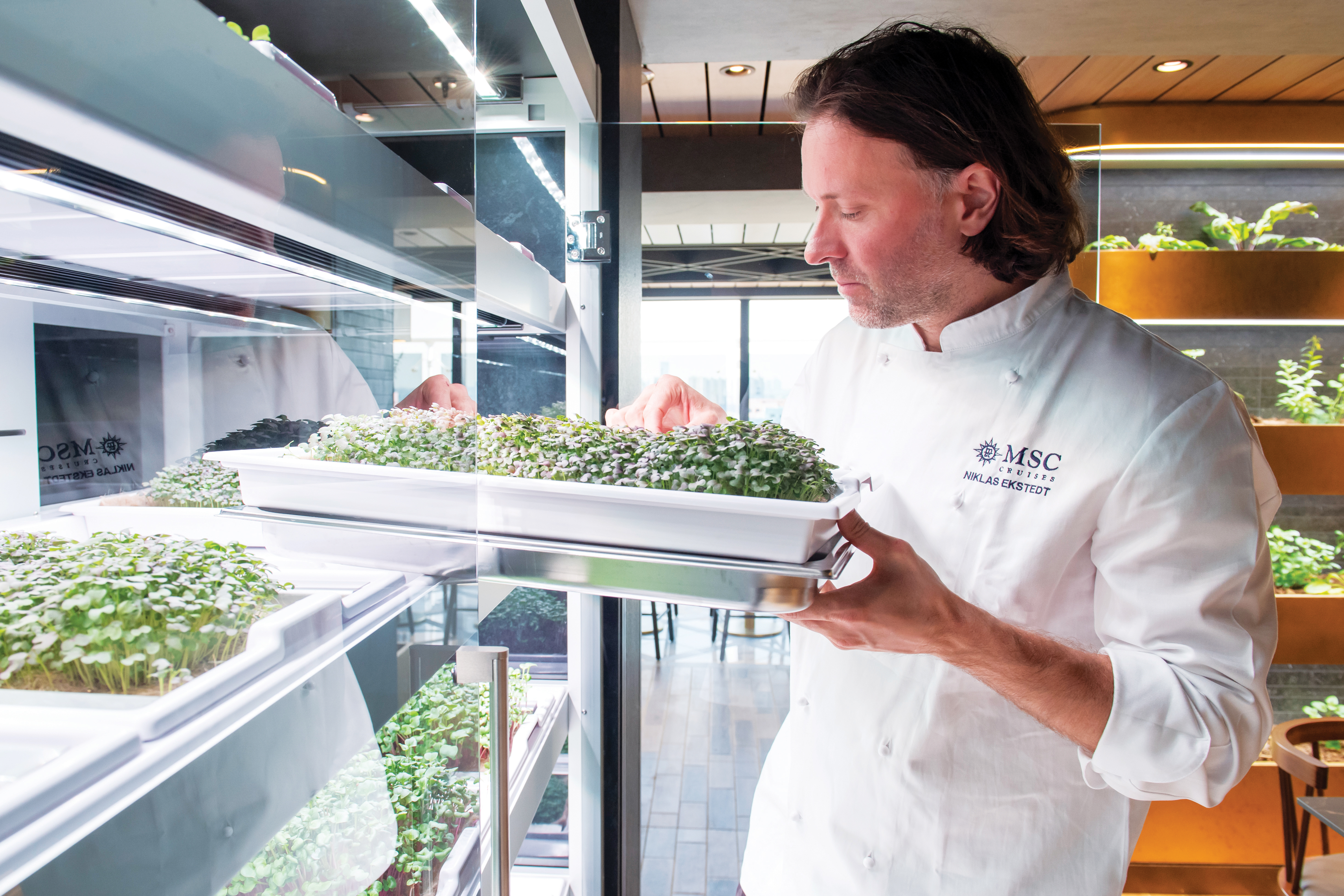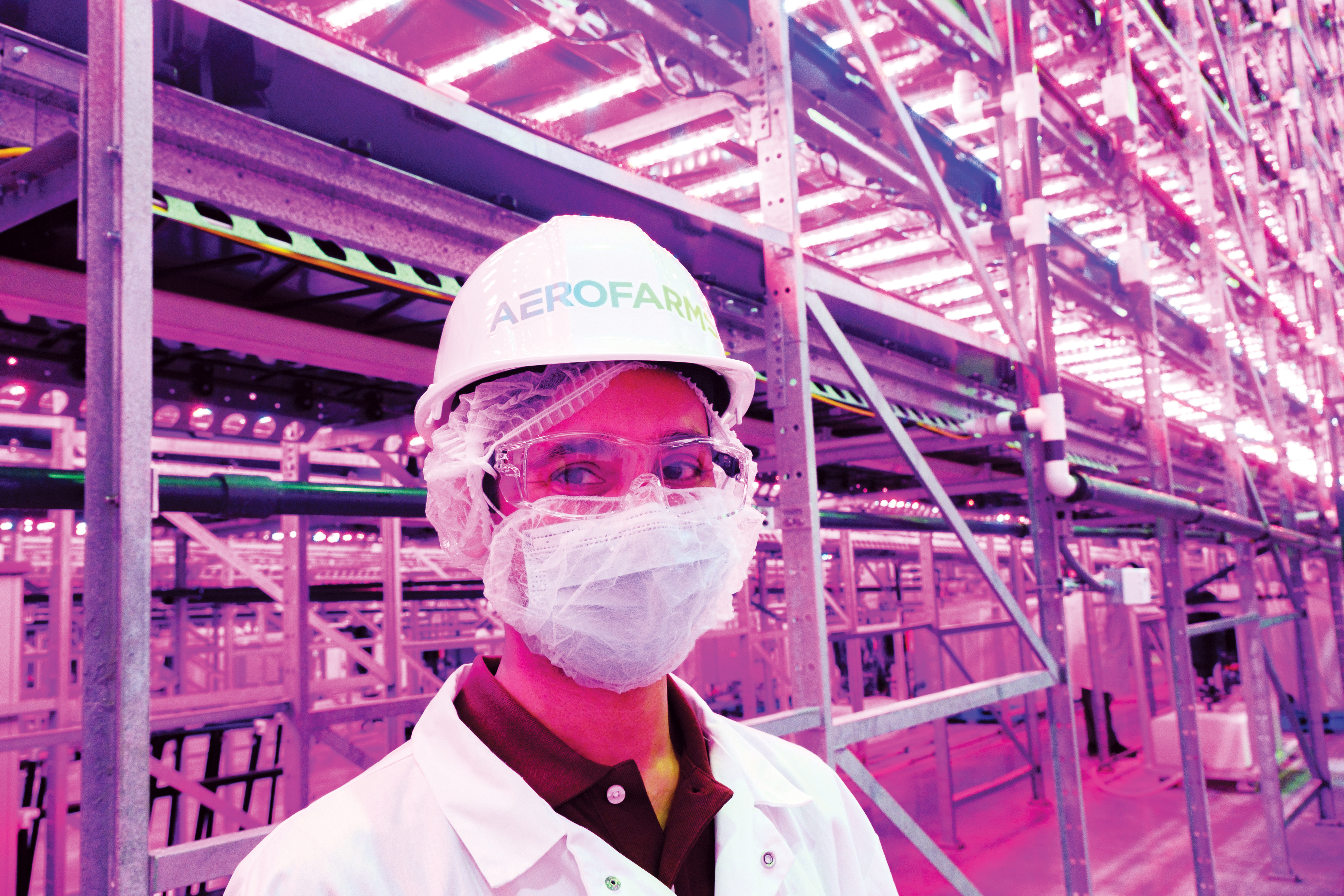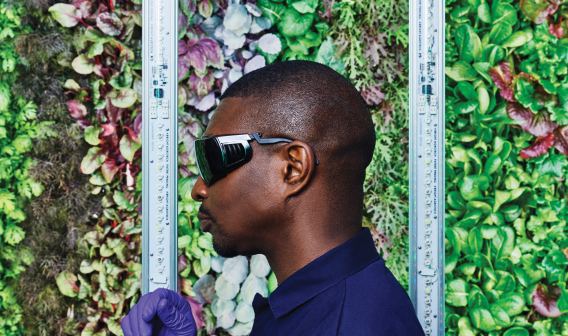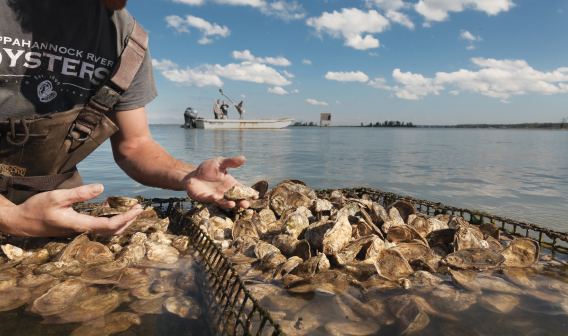
Babylon Micro-Farms, MSC World Europa
In 2022, MSC Cruises installed a Babylon garden on its ship, the MSC World Europa, to provide herbs, greens, and garnishes for the Chef ’s Garden Kitchen, a collaboration with Michelin-starred chef Niklas Ekstedt, billed as the world’s first at-sea hydroponic micro-farm. Babylon CEO Alexander Olesen said, “On-site micro-farms are going to be an important part of the supply chain for fresh ingredients, and it’s exciting to push the boundaries of local food production with this world-first installation on the high seas.”
Traditional Farmers Find CEA Success
Long before some of these companies were founded, one group set the pace for Virginia’s CEA industry: Soli Organic, formerly Shenandoah Growers. Under its former name, Soli was a classic outdoor agricultural field production business. Then, keeping up with industry trends, the company expanded into indoor farming and CEA.
Soli CEO Matthew Ryan cited Virginia’s location as a draw in establishing facilities in the Commonwealth, citing the ability to provide “efficient service to our growing customer base throughout the Mid-Atlantic region and beyond.”
Soli is the country’s leading grower of fresh organic culinary herbs. If you’ve seen potted herb plants for sale in your local grocery store, there’s a good chance they’re Soli products. The company’s 2021 rebranding reflects that market space and the techniques the company uses. “Soli” is derived from the Latin word for “soil,” which most indoor growers don’t use, relying instead on hydroponic methods. Soli’s use of soil allows for the shipment of living herbs to retailers, but its innovations go beyond growing techniques.
Soli runs its own refrigerated transportation service that enables the company to ship living plants across the country. The company’s trucks enable herbs that require different temperatures to be shipped on the same truck, enhancing shelf life.
CEA practitioners are drawn to Virginia’s advantageous location, top-notch business climate and incentives, and the talent, research, and resources coming out of the Commonwealth’s colleges and universities. Virginia is poised to help companies like Plenty, AeroFarms, Beanstalk, Babylon Micro-Farms, and Soli Organics make vital advancements in feeding the United States and the world.






